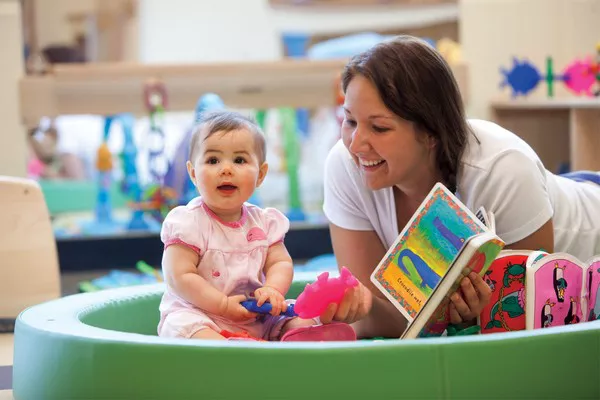Parenting is one of the most challenging yet rewarding journeys in life. Every parent aspires to raise happy, healthy, and well-adjusted children. However, achieving this goal requires a deep understanding of the principles and practices that constitute effective parenting. Over the years, researchers and experts have identified six key categories that encompass good parenting practices. By comprehensively addressing these categories, parents can create nurturing environments that foster their children’s physical, emotional, and cognitive development.
1. Nurturing Relationships
At the core of good parenting lies the establishment of nurturing relationships between parents and children. Nurturing relationships are built on love, trust, and open communication. Parents who cultivate strong bonds with their children create a supportive foundation upon which other aspects of parenting can thrive. This involves spending quality time together, actively listening to children’s thoughts and feelings, and showing empathy and understanding.
Moreover, nurturing relationships extend beyond the parent-child dynamic and encompass relationships within the family unit. Siblings, grandparents, and extended family members play crucial roles in a child’s upbringing. Encouraging positive interactions and fostering a sense of belonging within the family strengthens the child’s emotional security and social skills.
2. Setting Boundaries and Discipline
While nurturing relationships are essential, effective parenting also involves setting clear boundaries and providing consistent discipline. Boundaries serve as guidelines for acceptable behavior and help children understand expectations and consequences. Parents must communicate rules and expectations in a firm yet empathetic manner, taking into account the child’s age and developmental stage.
Discipline is an integral part of setting boundaries and involves teaching children appropriate ways to manage their emotions and behavior. Positive discipline strategies, such as positive reinforcement, logical consequences, and active listening, promote self-control and accountability while preserving the parent-child relationship. By maintaining consistency and fairness in discipline, parents create a structured environment where children can thrive and learn from their mistakes.
3. Emotional Support and Validation
Children’s emotional well-being is closely linked to their parents’ ability to provide emotional support and validation. Good parenting entails creating a safe space where children feel free to express their emotions without fear of judgment or ridicule. Parents should validate their children’s feelings, acknowledging their experiences and helping them develop emotional intelligence.
Emotional support involves actively listening to children’s concerns, offering comfort and reassurance during challenging times, and teaching them healthy coping mechanisms. By nurturing their emotional resilience, parents equip children with essential skills to navigate life’s ups and downs effectively. Additionally, fostering a positive emotional climate at home strengthens the parent-child bond and fosters a sense of security and trust.
4. Encouraging Independence and Autonomy
As children grow and develop, it is crucial for parents to gradually encourage independence and autonomy. Good parenting involves striking a balance between providing support and allowing children the freedom to explore and make their own choices. Encouraging independence fosters self-confidence, self-reliance, and problem-solving skills, which are essential for success in adulthood.
Parents can promote independence by offering age-appropriate responsibilities, encouraging decision-making, and providing opportunities for children to learn from their experiences. It is essential to resist the urge to micromanage or overprotect, as doing so can hinder children’s growth and development. Instead, parents should offer guidance and support while allowing children the space to learn from both their successes and failures.
5. Education and Intellectual Stimulation
Good parenting involves prioritizing education and intellectual stimulation to foster children’s cognitive development. Parents play a critical role in supporting their children’s learning and academic achievement by creating a stimulating environment that encourages curiosity, critical thinking, and creativity.
This includes exposing children to a wide range of experiences, such as reading books, exploring nature, engaging in educational activities, and encouraging hobbies and interests. Parents should also be actively involved in their children’s education, communicating with teachers, providing homework support, and advocating for their educational needs.
Moreover, fostering a love for learning and instilling a growth mindset promotes lifelong learning and academic success. By prioritizing education, parents empower their children to reach their full potential and succeed in a rapidly evolving world.
6. Leading by Example
Perhaps the most powerful form of parenting is leading by example. Children learn by observing their parents’ attitudes, behaviors, and values, making parental modeling an influential factor in their development. Good parenting involves embodying the qualities and traits parents wish to instill in their children, such as kindness, honesty, resilience, and empathy.
Parents should strive to demonstrate positive behaviors and healthy habits in their daily lives, whether it’s managing stress effectively, practicing good communication skills, or prioritizing self-care. By modeling positive behavior, parents provide children with valuable lessons and insights that shape their character and values.
Furthermore, leading by example extends to how parents navigate challenges and setbacks. Demonstrating resilience and perseverance in the face of adversity teaches children valuable lessons about resilience and problem-solving. By embodying the values they wish to impart, parents lay the foundation for their children’s moral and ethical development.
In conclusion, good parenting encompasses a holistic approach that addresses various aspects of children’s development. By understanding and implementing the six categories of good parenting—nurturing relationships, setting boundaries and discipline, emotional support and validation, encouraging independence and autonomy, education and intellectual stimulation, and leading by example—parents can create nurturing environments where children thrive and reach their full potential. While parenting is undoubtedly challenging, it is also incredibly rewarding, and by prioritizing these categories, parents can embark on a fulfilling journey of raising happy, healthy, and resilient children.


